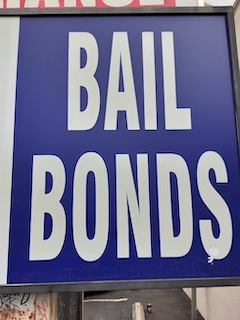Instead of reading the contract, the person usually asking us about reimbursement of money paid to the bail bondsman is hoping that perhaps the police will pay the bail bondsman back a fee for posting the bond, perhaps as some type of penalty for arresting someone and then deciding not to file charges. This sadly does not happen and there is no law that obligates the police or the prosecutor ‘s office to make such a payment.
We also caution the caller or client asking about the return of the bail bond fee that if the DA’s office rejects the case for insufficiency of the evidence, the most common reason, the DA’s office can still file the criminal complaint within the applicable statute of limitations if new information becomes available. The statute of limitations continues to run until a complaint is filed. Penal Code §§ 798 – 805.
In this regard, the person seeking reimbursement of the bail premium paid may want to allow the passage of time to see if sufficient evidence is gathered, as the person may end up needing a bail bondsman after all.
Indeed, we have seen clients told that their case is a DA reject and the clients then refuse to pay any more premiums to the bail bond company. This can be a huge mistake for two reasons. First, the bail bond company most likely will sue the person on a breach of contract theory for the remaining payments owed, possibly in small claims court if the amount owed is $7,500 or less, or in regular superior court if the amount exceeds $7,500.
Second, if no complaint is filed at the arraignment date set, bail posted is automatically exonerated fifteen days after the hearing. If a complaint is later filed when sufficient evidence is received, the person can ask the bail bond company for reassumption of bail. However, very few bail bond companies are going to do this if the person has breached their payment promises in the contract.
The above information does not apply if someone posts bail by depositing cash in full with the court or police. When that is done, which is uncommon, one can apply for return of the money in full once the judge exonerates the bond, which can be after the statute of limitations passes (or the DA’s office stipulates to this earlier), the case is dismissed or trial ends in an acquittal. The check usually takes six to eight weeks to be delivered.
When someone posts a bond with title to real property (a house or land, i.e.) as collateral, title can be cleared also after the judge formally exonerates the bond.
For more information about bail issues, please click on the following articles:
- What Is Bail and Can It Be Reduced?
- Can Bail Bondsmen Solicit Bail by Meeting a Person in Custody without Their Request?
- I Need to Get a Bail Bond – What Information Helps?
Contact us.  Clara Shortridge Foltz CCB
Clara Shortridge Foltz CCB Bail Bonds
Bail Bonds